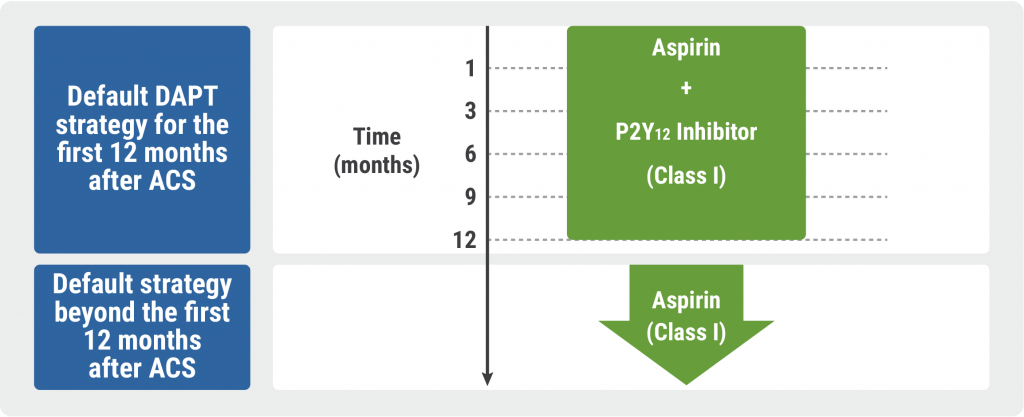https://doi.org/10.55788/41b3a05c
CO, USA) explained that Lp(a) is a well-known risk factor for cardiovascular events and that it hampers the responsiveness to PCSK9 inhibitors [1]. However, it is not yet clear which Lp(a) assessment should be used to map these prognostic and predictive associations. In the phase 3 ODYSSEY OUTCOMES study (NCT01663402), patients with recent ACS (n=11,970) were randomised to treatment with the PCSK9 inhibitor alirocumab or placebo. In addition, baseline Lp(a) was measured by 3 different tests:
- Siemens N-latex nephelometric immunoassay (IA-mass; mg/dL)
- Roche TinaQuant turbidimetric immunoassay (IA-molar; nmol/L)
- semi-automated mass spectrometry (MS; mmol/L)
The investigators observed the value of these assessments for the prognosis of MACE in the placebo group and the prediction of MACE reductions in the alirocumab arm.
In the placebo arm, the associations of Lp(a) concentrations and MACE risk were nearly identical for the 3 different tests, implying that the different methods of measurement were equally precise for the prognostication of MACE (see Figure). Likewise, the 3 tests were similar in predicting MACE reductions following alirocumab therapy.
These data suggest that Lp(a) is an important risk predictor regardless of how measured and may enable easier application in broad populations.
Figure: Prognosis of MACE according to Lp(a) concentrations in placebo arm [1]
 University of Colorado, ODYSSEY OUTCOMES
University of Colorado, ODYSSEY OUTCOMESMACE, major adverse cardiovascular events; MS, mass spectrometry.
- Szarek M, et al. Two of a kind: mass and molar immunoassay-based lipoprotein (a) concentrations are similarly prognostic for MACE risk and predictive of alirocumab benefit in ODYSSEY OUTCOMES. ESC Congress 2023, 25–28 August, Amsterdam, the Netherlands.
Copyright ©2023 Medicom Medical Publishers
Posted on
Previous Article
« Meta-analysis: Does FCM improve clinical outcomes in HF? Next Article
Immediate or staged revascularisation in STEMI plus multivessel disease? »
« Meta-analysis: Does FCM improve clinical outcomes in HF? Next Article
Immediate or staged revascularisation in STEMI plus multivessel disease? »
Table of Contents: ESC 2023
Featured articles
How to manage arterial thrombosis and thromboembolism in COVID-19?
2023 ESC Guidelines & Updates
Heart failure: the 2023 update
Guidelines for Acute Coronary Syndrome
Guidelines for the management of cardiomyopathies
Cardiovascular disease and diabetes: new guidelines
Guidelines for the management of endocarditis
Trial Updates in Heart Failure
Traditional Chinese medicine successful in HFrEF
CRT upgrade benefits patients with HFrEF and an ICD
Catheter ablation saves lives in end-stage HF with AF
Meta-analysis: Does FCM improve clinical outcomes in HF?
HEART-FID: Is intravenous ferric carboxymaltose helpful in HFrEF with iron deficiency?
Natriuresis-guided diuretic therapy to facilitate decongestion in acute HF
DICTATE-AHF: Early dapagliflozin to manage acute HF
STEP-HFpEF: Semaglutide safe and efficacious in HFpEF plus obesity
Key Research on Prevention
Does colchicine prevent perioperative AF and MINS?
Diagnostic tool doubles cardiovascular diagnoses in patients with COPD or diabetes
Inorganic nitrate strongly reduces CIN in high-risk patients undergoing angiography
Finetuning Antiplatelet and Anticoagulation Therapy
Should we use anticoagulation in AHRE to prevent stroke?
Results of FRAIL-AF trial suggest increased bleeding risk with DOACs
The optimal duration of anticoagulation therapy in cancer patients with DVT
DAPT or clopidogrel monotherapy after stenting in high-risk East-Asian patients?
Assets for ACS and PCI Optimisation
Immediate or staged revascularisation in STEMI plus multivessel disease?
Lp(a) and cardiovascular events: which test is the best?
No benefit of extracorporeal life support in MI plus cardiogenic shock
Functional revascularisation outperforms culprit-only strategy in older MI patients
Can aspirin be omitted after PCI in patients with high bleeding risk?
Angiography vs OCT vs IVUS guidance for PCI: a network meta-analysis
OCTOBER trial: OCT-guided PCI improves clinical outcomes in bifurcation lesions
Other
Minimising atrial pacing does not reduce the risk for AF in sinus node disease
ARAMIS: Can anakinra alleviate acute myocarditis?
Expedited transfer to a specialised centre does not improve cardiac arrest outcomes
Acoramidis improves survival and functional status in ATTR-CM
Related Articles
October 30, 2023
Does colchicine prevent perioperative AF and MINS?

October 30, 2023
Guidelines for Acute Coronary Syndrome
October 30, 2023
Traditional Chinese medicine successful in HFrEF
© 2024 Medicom Medical Publishers. All rights reserved. Terms and Conditions | Privacy Policy
HEAD OFFICE
Laarderhoogtweg 25
1101 EB Amsterdam
The Netherlands
T: +31 85 4012 560
E: publishers@medicom-publishers.com

